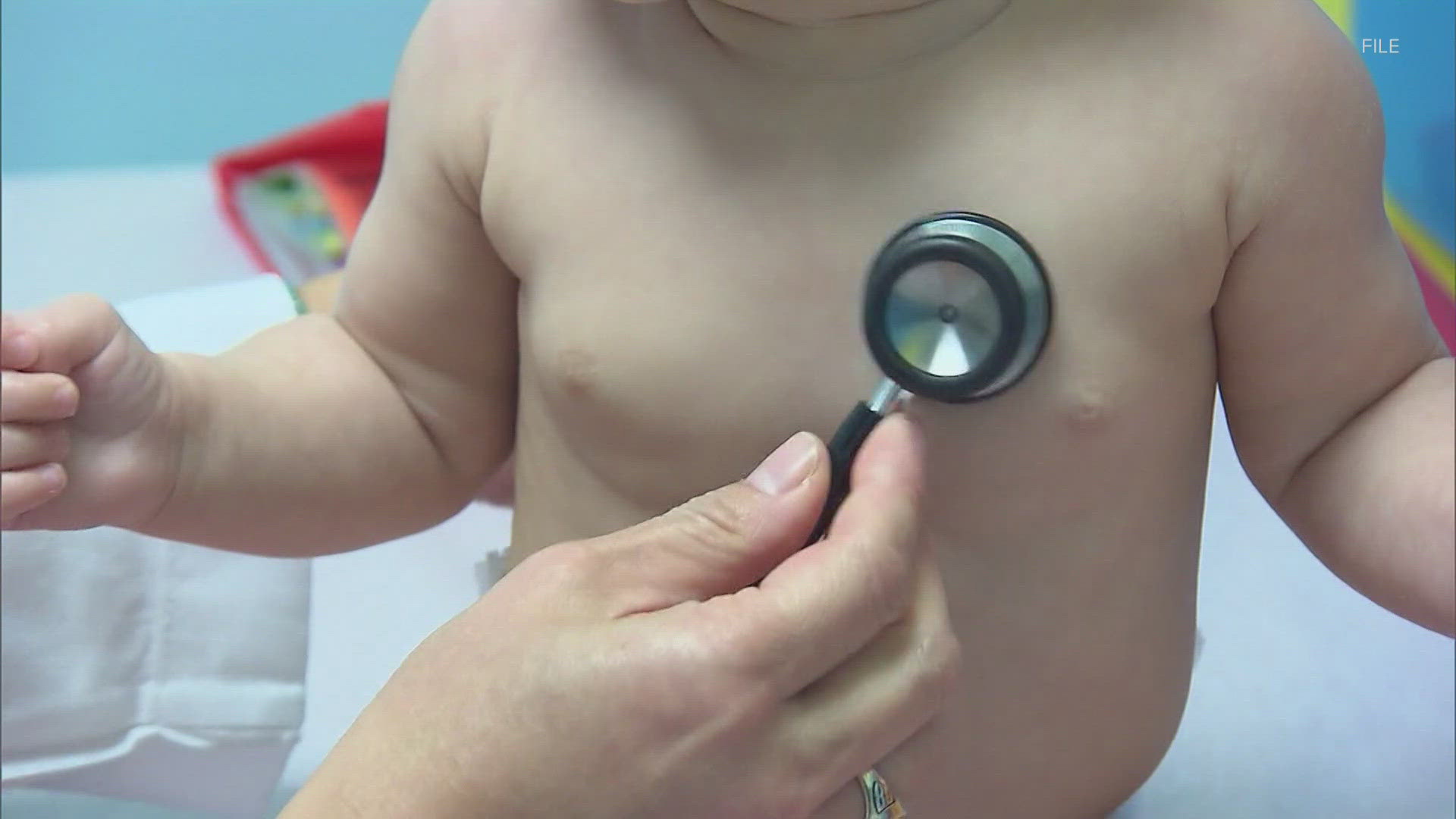SEATTLE — Respiratory infection season is well underway and coughing and sniffling noses will become more common. Before it gets really bad, doctors are advising families take advantage of immunizations to target a serious respiratory infection: RSV.
While the flu and COVID typically get a lot of attention, doctors warn, RSV can be very serious too, among infants and older adults.
RSV happens to be the number-one reason why babies go to the hospital in the U.S., according to the Centers for Disease Control and Prevention, with 100 to 300 babies dying of complication from RSV, per year.
Thankfully there are immunizations to prevent that and this season, doctors say it should be easier than ever.
"We're really trying to get the word out because we know how effective these immunizations are," said Dr. Maria Huang, a pediatrician based in Olympia, and co-chair of the Washington chapter of the American Academy of Pediatrics vaccine committee.
RSV, short for respiratory syncytial virus, feels like a cold for most of us, But for older people and infants, it can be dangerous.
One sign a baby is struggling with an RSV infection is difficulty breathing.
"A ton of mucus. Babies have to be suctioned in their nose and breathing fast; these little babies have to breathe maybe 60, 80 times a minute. They're breathing so fast, they sometimes can't eat well," said Dr. Carrie Jenner, a pediatrician at Virginia Mason Franciscan Health.
"Often why they need to be hospitalized, is because they can't get enough oxygen," Huang said.
HealthLink talked with two local pediatricians about how to prevent babies from having to go to the hospital because of RSV.
While supply wasn't up to speed when the FDA approved RSV immunizations last year, Huang said supply is back on track now.
"We're really trying to get the word out because we know how effective these immunizations are," Huang said.
Expecting mothers in their 32nd to 36th week of pregnancy can get an RSV vaccine, which will pass along antibodies to their newborn. Or, babies up to eight months old, can get a monoclonal antibody injection to protect them during the respiratory infection season.
"Most kids by the age of 2 get an RSV infection, and it can look like a normal cold, but to very young infants and older adults, it can be very serious," Jenner said.
Jenner recommends babies as young as one week old get the RSV antibody known as nirsevimab.
"The severest risk for RSV disease is within the first three months of life, so that's why I think it's so important and so amazing that we can offer this in that first week of life," Jenner said.
Huang adds, parents should pay attention since an RSV infection can lead to health issues later in life.
"We know that increases their risk of asthma and wheezing with colds in the future. It's not just hospitalization but long term effects we want to protect babies against," Huang said.
As for older adults, the CDC recommends all people 75 and older, and adults 60 to 74 with increased risk should get the RSV vaccine.

